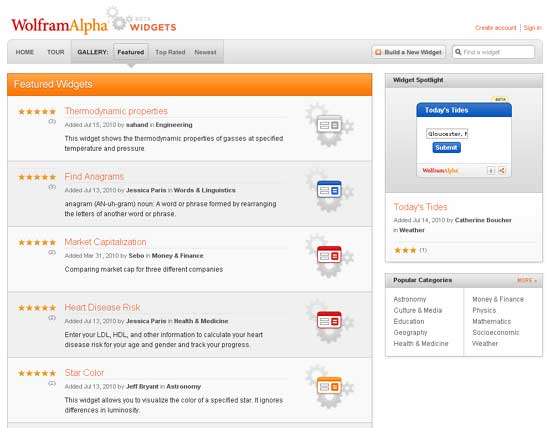Remember last summer when Wolfram Alpha launched that cool Personal Analytics for Facebook tool? Well, they’ve just expanded the offering even more, which is quite a feat considering how much data it was already able to pull.
“One of the most shared pods from our first release was our colorful social network visualization, writes Wolfram Alpha’s John Burnham in a blog post. “We’re extending this idea to help you better understand how your social network fits together. To start with, we’re showing you a new visualization that highlights friends based on the way that they fit into your network.”
“Let’s take an example,” he continues. “Say you’re a college student. You might have a group of friends from college, and another group from your old high school. If you’ve got any college classmates who also went to your high school, we might label them on your report as social connectors, because they connect two otherwise separate groups of your friends.”

Wolfram Alpha specifies five different network roles: social insiders and outsiders, social neighbors and gateways, and social connectors.
“Social insiders and outsiders are opposites,” explains Burnham. “A social insider has a lot of friends in common with you (e.g. your girlfriend since freshman year); conversely, a social outsider is someone with whom you have few or no mutual friends (e.g. that girl you met horseback riding in Romania). Social gateways and neighbors are also opposites: a social gateway contact has a lot of friends that are outside your network (e.g. the editor of your college newspaper), whereas a social neighbor has few friends outside your network (e.g. your identical twin). Social insiders and social neighbors sometimes overlap, as do gateways and outsiders—but not always. For example, a social outsider simply may not have enough outside friends to be a social gateway.”
They’ve also added color coding for various properties (relationship status, age, sex, number of likes, etc.), and the ability to filter your network by things like location and age. The offering can also show you geographical data about your network based on the locations of your friends.
There are also some various aesthetic changes.
Finally, Wolfram Alpha has announced the addition of Facebook Historical Analytics, which enables it to start collecting info to be able to show you the evolution of your Facebook profile over time.
In case you’re still waiting to gain access to Facebook’s Graph Search (which you most likely are, considering the slow roll-out), you might have fun playing around with this in the meantime. To use it, just go to Wolfram Alpha, search “facebook report,” and click “Analyze my Facebook Data.”
Note: it does appear that Wolfram Alpha is having some trouble meeting demand for access to this feature at the moment. I’m getting the message: “We’re sorry, with all the requests we have hit our limit for Facebook API calls. We are working on resolving the issue. Please try again later.”
Interestingly enough, I remember having similar trouble using the Facebook report when they first launched it.















